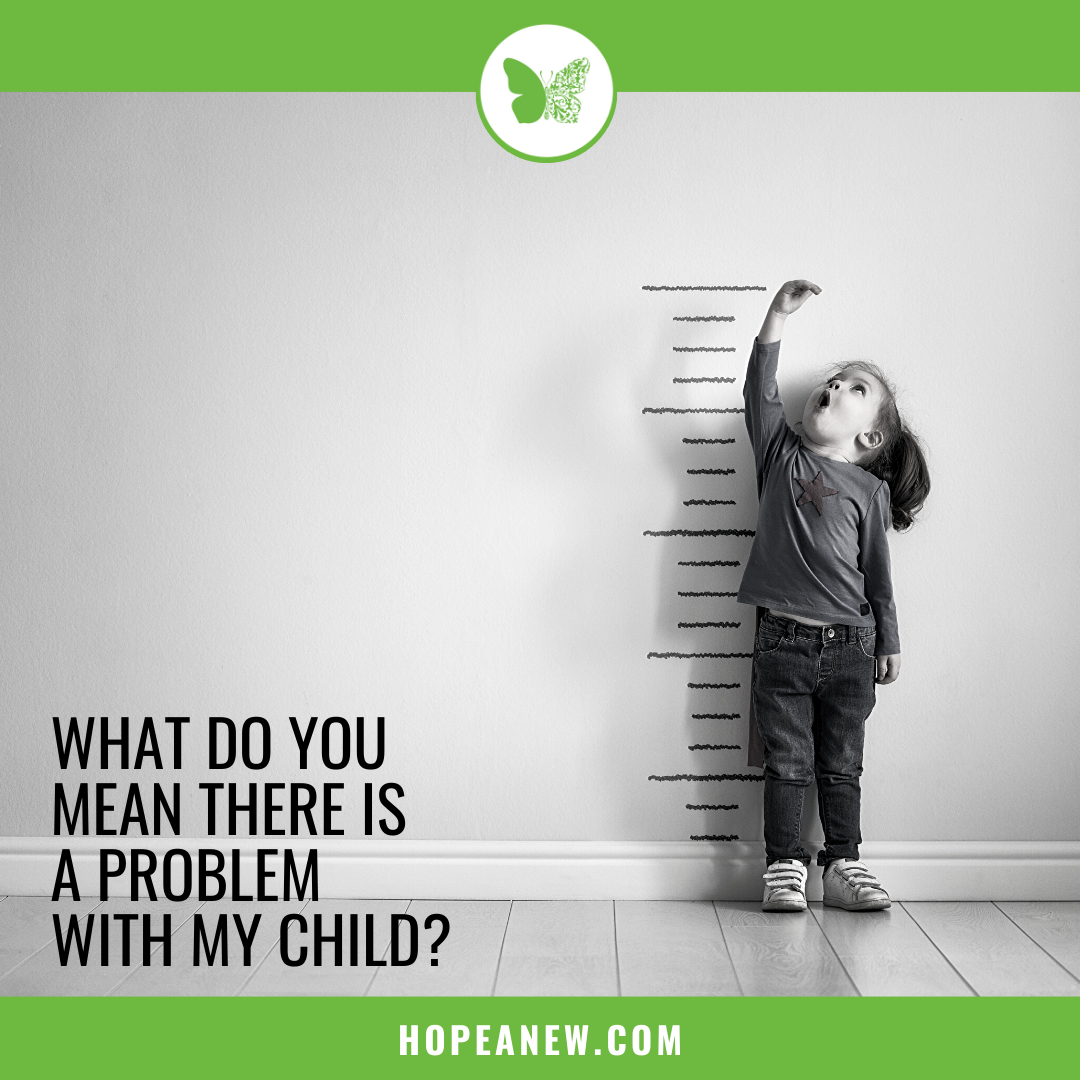
A Good Habit To Break
I overheard a teen at the check out counter the other day use the word "retarded."
Written by Leigh Ann Kaman
I overheard a teen at the check out counter the other day use the word "retarded." He wasn't talking about someone but something that was "retarded." Believe it or not, I hear it fairly frequently. When I do, I try to be polite and let it roll off my back. I'd even say it doesn't rank high in my list of pet peeves since most people don't even think about what it really means.
The R-word is an expression used for retard or retarded, words considered offensive and disrespectful when used to describe people with intellectual disabilities. It is also used to insult people, places, and things. The verb "retard" means to hinder or to make something slow. "Mental retardation" was introduced as a medical term for people with intellectual disabilities , replacing terms that were considered to be more offensive.
Over time, the word "retard" came to be used as an insult, tossed around the playground as a synonym for "stupid" or "dumb." It is not a respectful way to refer to individuals with any kind of disability.
We often fail to understand how words can hurt until they become personal. Right now our country is in a war of words. Books have been written to teach us how to use politically correct words for race, religion, and politics.
While 'disability awareness' isn't trending like some other topics, I hope you're willing to think about this population for a moment today.
Here are a few thoughts from a mom of a kid with special needs:
Stereotypes are crippling. It affects how the world views my son. He is not dumb or stupid, just a person with genes ordered differently that you or I.
I wish that Ben's siblings never had to hear that word. I don't want them to think of their brother as "less than" in any way. He is much more than his intellectual capability.
I'm not trying to censor anyone's language, or be politically correct. I just want to use words that provide appropriate consideration, dignity, and respect for people with disabilities.
I'm also not trying to shame anyone. I've used "stupid" or "dumb" in the wrong way before having Ben. But, having Ben has taught me that the value of a person is not found in their cognitive abilities.
It's never too late. Maybe you only use the word occasionally or maybe it's a habit. But it's never too late to stop. Here's a way I can help you.
Every time you are about to say the R word... please think about the people you are hurting when you you throw around such a useless word. There may be someone within earshot that has a friend, sibling or child with a disability. Consider if their loved one should be reduced to "dumb" or "stupid".
Also, think about the value that those with disabilities bring into the world. For example, my kid brings more laughter and happiness to my life than I could ever imagine. He takes life in stride and could teach us all to not take things so seriously. Rather than being "dumb", it's almost like he is a genius at teaching joy.
He has compassion. He feels and loves big. And when you love big, you can also feel hurt deeply. He hurts not just for himself but for the ones who are hurting around him. He has a Master's degree in compassion.
He has accomplished many things. He plays soccer, baseball, runs track, and was manager of the Middle School basketball team, High School baseball and football team.
He is daily teaching me about loving, laughing, patience and working hard.
So the next time you think about using the "r" word just think about him!
It is really a good habit to break and worth it to us!
Written by Leigh Ann Kaman
Leigh Ann Kaman is a wife and mom to three kids, one of which has Down Syndrome. She advocates in the special needs community and has started a ministry in her church for those touched by special needs. She is also actively involved in Capernaum, a ministry of Young Life for young adults with disabilities. Writing about her life as a special needs parent has always been her passion.
4 Steps for Navigating Fear
With everything going on in the world with Covid-19, we have a lot more unknowns and a lot more fears. How do we navigate these fears? In this article, Jonathan McGuire outlines 4 steps to help.
In last week’s article, I shared how fear serves an important role and acts like the warning light on the dash of our car. How did last week go? Did you recognize this warning light going off in yourself, your spouse, or child?
If your answer is yes, then you may be wondering what to do. Here are four steps to help you navigate your fear and for you to help your family members navigate their fears:
1. Pray & remind yourself of who God is:
Take a deep, slow breath or 20 and share your fears with your heavenly father. Ask Him for His peace and wisdom. Remind yourself of those truths in God’s word about who He is and His character. For example, He is sovereign and all knowing.
2. Develop & implement a plan:
For example:
Determine steps needed to protect your family from getting sick, such as limit social interaction, wash hands, etc.
Establish a new routine – after being somewhere, get in car and use hand sanitizer on hands, inside door handle, phone and wallet before touching the steering wheel
Check into alternative options to meet medical needs, if the need arises
Think of alternative solutions for social engagement
…..
This will not be a one and done plan. As you implement it, you will need to revise it to better meet your family’s needs. There will be items on the list that you won’t have immediate solutions for but part of your plan may be steps to find those solutions.
3. Find a community:
Fear becomes more paralyzing when we go through it alone. Find a community that gets it but be aware of the culture of that community. You become like the people you spend the most time with. If the community is negative and not hope-filled, that will feed your fear and not reset it.
As a side note, if this is a need that you see in your life, I would like to invite you to join the Hope Anew Online Community. This is a great time to join as we have waived the membership fee. You can learn more at HopeAnew.com
4. Look for ways to bless others:
When we look for ways to be “Jesus with skin on” to others, it can take our focus off ourselves and we can receive joy as we encourage others.
During this time you may need to be creative but it can become a fun family project.
As you are figuring out how to navigate this new season, remember that God is with you. He loves you and your family. He will never leave you and never forsake you.
Written by Jonathan McGuire
Jonathan McGuire is the father of two sons and the co-founder of Hope Anew, a nonprofit that comes alongside the parents of children impacted by disability on a spiritual and emotional level. You can follow Hope Anew on Facebook here.
Hope Anew has launched the Hope Anew Online Community and would love to have you be a part of it! You can learn more at www.HopeAnew.com. Due to COVID-19, Hope Anew is waiving all membership fees for the community!
Written by Jonathan McGuire
"What Do You Mean There Is A Problem With My Child"
I feel for the parent who does not want to acknowledge that their child has “special needs”. I have been there. It feels like a betrayal or failure. It dashes hopes and dreams…
Written by Kevin O’Brien
“What do you mean there is a problem with my child?”
In some ways the parent who refuses to acknowledge their child’s special needs is harder to help than the person who blames themselves or God or the devil for the reality they are facing (see the previous articles in this series for all of these responses). Sometimes it is hard to know what to do or to say even when you have been there yourself, even when you too have wanted to deny this reality.
As a society we have become much better at giving people with special needs dignity and respect. We don’t tolerate language or statements about people with special needs that were commonplace when I was in school. All of this is a step in the right direction, but sometimes I wonder if in our desire to do better, we haven’t also made a serious mistake.
Have we made it too hard to acknowledge brokenness?
I feel for the parent who does not want to acknowledge that their child has “special needs”. I have been there. It feels like a betrayal or failure. It dashes hopes and dreams, makes us feel like we are somehow less and means admitting that we are not really in control. Even more, I feel for the child who will not get the help they so desperately need until their parents acknowledge the truth. When a parent refuses to see that their child needs help like therapy or to be in a special needs classroom, they (usually inadvertently) hurt their child. When we are so afraid of offending that we do not speak up to actually help, are we being kind?
Compassion demands that we tell the truth. No, we should not be brutal or mean spirited about it. Yes, some people delight in telling the truth to inflict pain. But we do not abandon the truth because some abuse it. Healing can’t happen until the truth is seen. Our children with special needs are broken. But that is only a part of the story.
In the Hebrew and Christian Bibles, Genesis 1 and 2 tell the story of creation. God creates a glorious universe, a world teaming with beauty and life. We are told in Genesis 1:27 that God creates human beings – male and female – in His image! He declares all creation good and places humans in the middle of a garden. He gives us purpose and companionship. He gives us Himself.
And we mess it up. Theologians call it “The Fall”. It happens in Genesis 3–pretty much the same page as all of the good stuff that came before. Everything is affected. As one of my professors used to say, “The Fall goes all the way down.”
The truth is that we are ALL BROKEN.
Not a popular sentiment today. On the one hand, I am encouraged by the almost gut level reaction that people have to someone being called broken. It is right and good to give everyone dignity and respect, no matter who they are, where they come from, what their status or circumstance in life or even their abilities. But that doesn’t mean we cannot or should not acknowledge true brokenness – whether it is our own or the brokenness of others.
Often, we define our entire identity around one aspect of who we are. I am part of the (fill in the blank) community. It is easy to understand why a parent would not want their child’s disability to be the defining feature of their identity. I get it. I myself have resisted being “autism dad” as a writer for well over a decade.
Here’s the truth: I am the father of an autistic child. Nathan is broken. I can’t fix that. The difference between his brokenness and mine? Most of the time I can hide my brokenness to the outside world. He can’t. But that is not the sum total or even the most important part of my identity or his. Being broken is universal, but it is the beginning of the story not the end.
When we realize that everyone is broken, we can – have to – give up the idea that we are better, or worse, than anyone else. We can give up playing pretend. We can stop curating our Facebook/Instagram perfect lives and get real.
My identity? First and foremost, above, before and through every other aspect of me is found in the fact that I am created in the image of God and redeemed in Christ. That is good news. News beyond any trauma or disability, beyond any one aspect of who we are. And as we will see next time, it points to a better way of understanding suffering.









